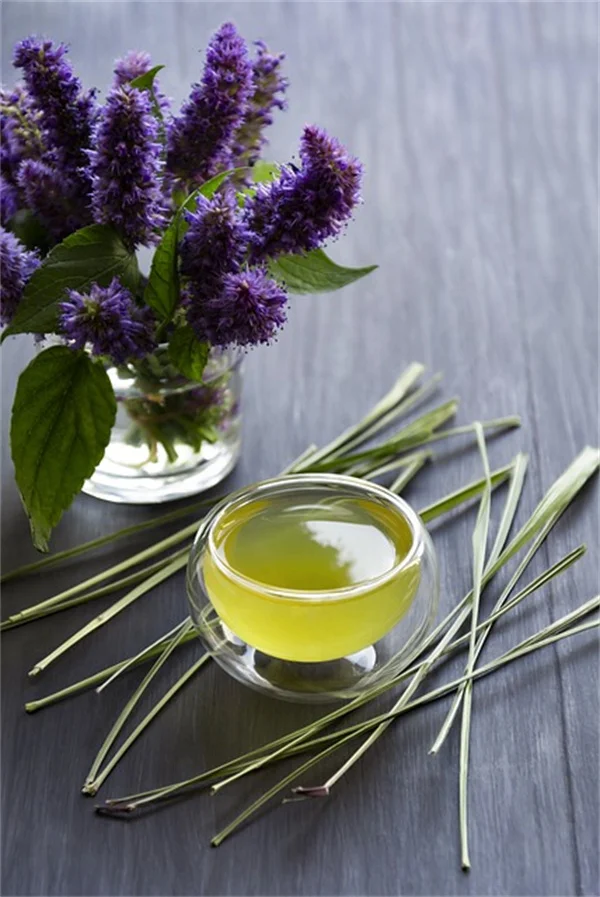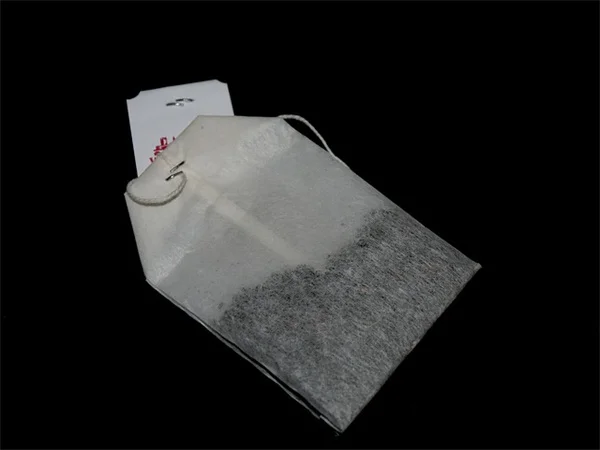Advertisement
Is that pink eye from COVID or just allergies? The answer is: it could be either, but there are telltale signs to watch for. With the new Arcturus variant bringing conjunctivitis as a symptom, it's more confusing than ever to tell viral pink eye from allergic reactions. I've been tracking this closely, and here's what you should know - viral conjunctivitis from COVID tends to come with fever and other COVID symptoms, while allergy-related pink eye usually brings intense itching without fever. But honestly, the only sure way to know? Get checked by an eye doc. They've got special tools that can spot the difference when our eyes can't.
E.g. :Topical Finasteride for Hair Loss: What Men Need to Know in 2024
- 1、Is It COVID Eye or Just Allergies? Let's Break It Down
- 2、Kids and COVID Eye: What Parents Should Know
- 3、Arcturus: The New Kid on the COVID Block
- 4、Allergies vs COVID: Your Action Plan
- 5、Living With COVID in 2023
- 6、Beyond the Basics: More About Eye Health During Viral Seasons
- 7、Natural Remedies vs Medical Treatments
- 8、The Future of Eye Health in a Post-Pandemic World
- 9、Your Eyes and the Changing Seasons
- 10、Final Thoughts on Keeping Your Eyes Healthy
- 11、FAQs
Is It COVID Eye or Just Allergies? Let's Break It Down
That Annoying Pink Eye Feeling
You wake up with itchy, watery eyes and immediately wonder - "Is this COVID or just my seasonal allergies acting up again?" Trust me, you're not alone in this confusion. The new Arcturus variant (XBB.1.16) has brought an unexpected guest to the COVID symptom party: conjunctivitis, or as we commonly call it, pink eye.
Here's what's fascinating - while previous COVID strains gave us the usual suspects like cough and loss of smell, Arcturus decided to be different. Dr. William Schaffner from Vanderbilt University tells us this strain has two special features: fever is more common than with previous variants, and yes, it can give you that lovely pink eye look. Now isn't that special?
Viral vs Allergic Pink Eye: Spotting the Difference
Picture this: your eyes are red, irritated, and maybe even crusty in the morning. Is it:
| Type | Key Symptoms | Discharge |
|---|---|---|
| Bacterial | Thick, yellow/green gunk | Sticks lashes together |
| Viral (like COVID) | Watery, clear tears | No crusting |
| Allergic | Intense itching | Clear and watery |
See how tricky this can be? Viral and allergic conjunctivitis could be twins in terms of symptoms. That's why Dr. Nicholas Onken from UAB School of Optometry says the only surefire way to know is visiting an eye doctor. They've got special dyes and equipment that can tell what's really going on with your peepers.
Kids and COVID Eye: What Parents Should Know
 Photos provided by pixabay
Photos provided by pixabay
What Doctors Are Observing
Here's something interesting - while we don't have rock-solid scientific proof yet, doctors worldwide are noticing more kids with COVID are showing up with itchy pink eyes. Makes you wonder, doesn't it? Why would this be happening more with children?
The answer might be simpler than we think. Many viruses already cause pink eye - adenovirus being the classic example. Since COVID loves to mimic other viruses, it's not surprising it's joining the pink eye party too. The American Academy of Ophthalmology even lists conjunctivitis as one of COVID's possible symptoms now.
Glasses and Contacts During COVID
Now here's a question I get asked a lot: "Should I switch from contacts to glasses during COVID?" The truth is, we just don't have enough data to say for sure. What we do know is that hand hygiene becomes extra important if you're a contact lens wearer during any viral outbreak.
Think about it - how many times do you touch your eyes when putting in contacts? Exactly. That's why Dr. Onken recommends being extra careful with hand washing if you're handling lenses during this time.
Arcturus: The New Kid on the COVID Block
How Widespread Is It Really?
The World Health Organization started keeping tabs on Arcturus back in March, and let me tell you, this variant moves fast. It's already popped up in over 30 countries and accounts for about 10% of U.S. cases according to the CDC. In India, it's become the dominant strain - which makes you think it might do the same here soon.
But here's the good news - while the pink eye symptom is new, WHO still considers Arcturus a low-risk variant. Hospitals aren't seeing huge spikes in severe cases, which is always reassuring to hear.
 Photos provided by pixabay
Photos provided by pixabay
What Doctors Are Observing
If you do end up with COVID-related pink eye, here's what to expect: lots of tearing, some itchiness, maybe occasional blurry vision. The silver lining? These symptoms typically clear up on their own as you recover from COVID. Just like that uninvited guest who finally leaves the party.
Allergies vs COVID: Your Action Plan
When It's Probably Allergies
Your eyes feel like you rubbed them with sandpaper, they're redder than a lobster, and you can't stop scratching. Sound familiar? The Asthma and Allergy Foundation of America says these are classic signs of allergic conjunctivitis. Unlike COVID pink eye, allergy symptoms tend to:
- Get worse when pollen counts are high
- Respond well to antihistamine eye drops
- Come with other allergy symptoms like sneezing
Pro tip: Try wearing sunglasses outside and using an air filter at home. Your eyes will thank you.
When to Call the Doctor
Here's my rule of thumb: if your eyes are giving you trouble and you're not sure why, get them checked out. Especially if you notice:
• Severe pain (not just irritation)
• Vision changes that don't improve with blinking
• Symptoms that last more than a week
Remember what Dr. Bahl says - when in doubt, check it out. Your future self will appreciate you being proactive about your eye health.
Living With COVID in 2023
 Photos provided by pixabay
Photos provided by pixabay
What Doctors Are Observing
Even though we're past the pandemic phase, some things haven't changed. Washing your hands remains your best defense against all sorts of viruses, including COVID. And let's be honest - it's just good hygiene anyway.
Dr. Schaffner puts it perfectly: "This virus isn't going away, and it's going to keep changing." That means staying up to date with vaccinations and using common sense when you're sick. You wouldn't go to work with the flu, right? Same logic applies here.
The Bottom Line
At the end of the day, whether it's COVID, allergies, or just bad luck, taking care of your eyes matters. They're kind of important - you use them every day! So if something seems off, don't tough it out. Get it checked, follow your doctor's advice, and soon enough you'll be seeing clearly again.
And hey, look on the bright side - if you do get COVID eye, at least you've got a legitimate reason to rock those cool sunglasses indoors. Silver linings, right?
Beyond the Basics: More About Eye Health During Viral Seasons
The Science Behind Viral Pink Eye
Ever wonder why viruses like COVID can affect your eyes? It's all about the ACE-2 receptors - these little doorways that the virus uses to enter cells. Turns out, your conjunctiva (that thin membrane covering your eye) is packed with them! That's why when you rub your eyes after touching a contaminated surface, you're basically rolling out the red carpet for viruses.
Here's something most people don't know - your tears actually contain antiviral properties. That's right, your body tries to fight back! But when a virus like COVID overwhelms these defenses, that's when you get the redness, irritation, and watery discharge. Kind of like how your immune system sends in the cavalry when you have a cold.
Digital Eye Strain: The Silent Aggravator
With more people working from home these days, we're all staring at screens way too much. Did you know the average American spends over 7 hours a day looking at digital devices? This constant screen time can make any eye irritation worse, whether it's from allergies or infection.
Try this simple trick I use: every 20 minutes, look at something 20 feet away for 20 seconds. We call it the 20-20-20 rule. It gives your eye muscles a break and helps prevent that dry, irritated feeling that can mimic pink eye symptoms. Your eyes will feel fresher, and you might even notice your productivity improves!
Natural Remedies vs Medical Treatments
Home Solutions That Actually Work
Before you rush to the pharmacy, try these doctor-approved home remedies for irritated eyes:
- Cold compresses (a clean washcloth soaked in cold water works great)
- Artificial tears (look for preservative-free versions)
- Warm tea bag compresses (the tannins in black tea can reduce swelling)
But here's the catch - if your symptoms last more than 48 hours or get worse, it's time to see a professional. Remember that time I tried to tough it out with a "minor" eye irritation? Turns out it was a bacterial infection that needed prescription drops. Lesson learned!
When You Need Professional Help
Not all eye drops are created equal. Did you know that some over-the-counter redness relievers can actually make symptoms worse with prolonged use? It's called rebound redness, and it's why eye doctors recommend using them sparingly.
Here's a quick comparison of treatment options:
| Condition | Best Treatment | Time to Relief |
|---|---|---|
| Allergic Conjunctivitis | Antihistamine drops | 15-30 minutes |
| Viral Pink Eye | Cold compresses + artificial tears | 3-5 days |
| Bacterial Pink Eye | Antibiotic drops | 24-48 hours |
See why self-diagnosis can be tricky? What works for one type of irritation might do nothing for another. That's why when in doubt, get it checked out!
The Future of Eye Health in a Post-Pandemic World
New Technologies on the Horizon
Telemedicine for eye care has exploded since 2020. Now you can actually get a preliminary eye exam through your smartphone! Apps like EyeCare Live connect you with optometrists who can assess redness, irritation, and even some vision issues through your phone's camera.
But here's the funny thing - these services still can't replace in-person visits completely. I tried one when I had pink eye last year, and while the doctor could see the redness, she couldn't do the fancy tests that determine if it was viral or bacterial. Still, it's great for peace of mind when you're not sure if you need to rush to the clinic.
Changing Hygiene Habits
The pandemic taught us all some valuable lessons about hygiene, didn't it? Here are three habits I've kept that make a big difference for eye health:
1. Never sharing eye makeup (yes, even with your sister)
2. Washing hands before touching my face (this one's tough but worth it)
3. Regularly disinfecting my glasses (you'd be surprised what builds up on them)
Did you know your glasses can harbor viruses for up to 9 days? That's why giving them a quick clean with alcohol wipes has become part of my morning routine. Small effort, big payoff!
Your Eyes and the Changing Seasons
Why Spring and Fall Are the Worst
If your eyes feel like they're under attack during seasonal changes, you're not imagining things. Pollen counts can vary by up to 500% between seasons! That's why your allergy symptoms might suddenly flare up even if nothing else in your routine has changed.
Here's a pro tip from my allergist: start using allergy eye drops before your symptoms typically begin each season. It's much easier to prevent irritation than to calm it down once it starts. Think of it like putting on sunscreen before you go outside rather than after you're already sunburned!
Indoor Allergies You Might Not Realize You Have
Wait a minute - you mean my irritated eyes could be from something inside my house? Absolutely! Dust mites, pet dander, and even mold spores can cause year-round eye irritation that many people mistake for viral symptoms.
Try this experiment: spend a weekend at a friend's house or hotel. If your eye symptoms improve, you might have an indoor allergen problem. Then it's time to consider:
- HEPA air filters
- Allergy-proof bedding
- More frequent vacuuming
I discovered my "chronic pink eye" was actually a dust mite allergy after trying this trick. Now my eyes feel great year-round thanks to some simple home changes!
Final Thoughts on Keeping Your Eyes Healthy
Prevention Is Better Than Cure
You know what they say - an ounce of prevention is worth a pound of cure. When it comes to your eyes, this couldn't be more true. Simple habits like:
• Wearing sunglasses outside (even on cloudy days)
• Taking regular screen breaks
• Staying hydrated (yes, this affects your eyes too!)
• Getting enough sleep (your eyes need rest too)
Can make a world of difference in preventing irritation before it starts. Your future self will thank you when you're not dealing with red, itchy eyes during important meetings or family events!
Listen to Your Body
At the end of the day, you know your body better than anyone else. If something feels off with your eyes, don't ignore it. Our eyes have this amazing way of telling us when something's wrong - whether it's through redness, irritation, blurred vision, or just that general "something's not right" feeling.
Remember that time I ignored mild eye irritation for weeks because I was "too busy"? Yeah, turned out to be early-stage dry eye syndrome that was much easier to treat when caught early. The moral of the story? Your eyes are precious - treat them that way!
E.g. :Is It COVID-19 or Allergies? - American Academy of Ophthalmology
FAQs
Q: How can I tell if my pink eye is from COVID or allergies?
A: Here's how I explain it to my friends - COVID-related pink eye often shows up with other symptoms like fever, cough, or fatigue, while allergy eyes typically make you want to scratch them out of your head. The Arcturus variant seems particularly fond of causing conjunctivitis, especially in kids. But here's the tricky part - both can cause redness and watery discharge. That's why Dr. Onken says we need professional evaluation. Personally, I recommend COVID testing if you develop pink eye plus any other suspicious symptoms these days.
Q: Should I stop wearing contact lenses if I have pink eye?
A: Absolutely yes, and let me tell you why from experience. When your eyes are irritated, the last thing they need is something foreign like contacts. I've seen too many patients make their conjunctivitis worse by continuing lens use. Switch to glasses until your eyes completely clear up - usually about a week for viral cases. And here's a pro tip: always wash your hands like you're prepping for surgery before handling contacts, especially during allergy season or viral outbreaks.
Q: Can the new COVID booster prevent pink eye symptoms?
A: Great question! While the updated boosters target newer variants like Arcturus, we don't have specific data yet on whether they prevent COVID-related conjunctivitis. What we do know is that vaccination reduces your overall risk of severe COVID symptoms. Think of it this way - the shot might not keep you from getting pink eye, but it could mean the difference between mild irritation and serious illness. As my colleague Dr. Schaffner says, "This virus keeps changing, so our protection needs to keep up too."
Q: How long does COVID pink eye typically last?
A: In most cases I've reviewed, viral conjunctivitis from COVID clears up within 7-10 days without special treatment. It's annoying as heck (trust me, I've been there), but usually resolves as your body fights off the infection. Here's what worries me though - if symptoms last longer than two weeks or include vision changes, that's your cue to see an eye doctor stat. Allergic pink eye can drag on for weeks if you don't address the underlying allergies, which is why proper diagnosis matters so much.
Q: Are there home remedies that help with COVID-related pink eye?
A: While nothing cures viral pink eye overnight, here's what works for relief: cool compresses (not hot - that increases inflammation), preservative-free artificial tears, and meticulous hygiene. I keep single-use eye drop vials in my medicine cabinet for these situations. But here's my strong warning - avoid redness-reducing drops like Visine. They can actually make things worse long-term. And whatever you do, don't share towels or pillowcases while you have symptoms - that's how you spread viral conjunctivitis to your whole household!

